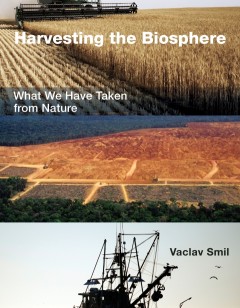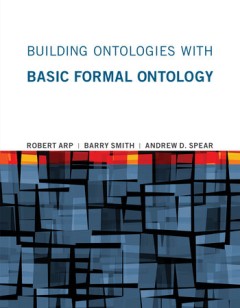Filter by

Heredity, Family, and Inequality: A Critique of Social Sciences
Empirical literature in disciplines ranging from behavioural genetics to economics shows that in virtually every aspect of life the outcomes of children are correlated to a greater or lesser extent with the outcomes of their parents. Beenstock offers theoretical and methodological tools for understanding these correlations.OCLC-licensed vendor bibliographic record.
- Edition
- -
- ISBN/ISSN
- 0262301385
- Collation
- 1 online resource (viii, 474 pages) :illustrations
- Series Title
- -
- Call Number
- -

Harvesting the biosphere :what we have taken from nature
An interdisciplinary and quantitative account of human claims on the biosphere's stores of living matter, from prehistoric hunting to modern energy production. The biosphere—the Earth's thin layer of life—dates from nearly four billion years ago, when the first simple organisms appeared. Many species have exerted enormous influence on the biosphere's character and productivity, but none …
- Edition
- -
- ISBN/ISSN
- 9780262312264
- Collation
- 1 online resource
- Series Title
- -
- Call Number
- -

Building Ontologies with Basic Formal Ontology
Providing an introduction to the field of applied ontology that is of particular relevance to biomedicine, this thorough book covers theoretical components of ontologies, best practices for ontology design, and examples of biomedical ontologies in use. --OCLC-licensed vendor bibliographic record.
- Edition
- -
- ISBN/ISSN
- 0262329581
- Collation
- 1 online resource
- Series Title
- -
- Call Number
- -

American illuminations :urban lighting, 1800-1920
How Americans adapted European royal illuminations for patriotic celebrations, spectacular expositions, and intensely bright commercial lighting to create the world's most dazzling and glamorous cities.Illuminated ftes and civic celebrations began in Renaissance Italy and spread through the courts of Europe. Their fireworks, torches, lamps, and special effects glorified the monarch, marked the …
- Edition
- -
- ISBN/ISSN
- 9780262344784
- Collation
- 1 online resource (x, 280 pages)
- Series Title
- -
- Call Number
- -

Small, Gritty, and Green: The Promise of America's Smaller Industrial Cities …
How small-to-midsize Rust Belt cities can play a crucial role in a low-carbon, sustainable, and relocalized future.OCLC-licensed vendor bibliographic record.
- Edition
- -
- ISBN/ISSN
- 9780262302708
- Collation
- 1 online resource (xxxiv, 211 pages) :illustrations.
- Series Title
- -
- Call Number
- -

Squatters in the Capitalist City: Housing, Justice, and Urban Politics
To date, there has been no comprehensive analysis of the disperse research on the squatters’ movement in Europe. In Squatters in the Capitalist City, Miguel A. Martínez López presents a critical review of the current research on squatting and of the historical development of the movements in European cities according to their major social, political and spatial dimensions. Comparing citi…
- Edition
- -
- ISBN/ISSN
- 9781317514749
- Collation
- -
- Series Title
- -
- Call Number
- 720 MAR s

Prisms
Prisms, essays in cultural criticism and society, is the work of a critic and scholar who has had a marked influence on contemporary American and German thought. It displays the unusual combination of intellectual depth, scope, and philosophical rigor that Adorno was able to bring to his subjects, whether he was writing about astrology columns in Los Angeles newspapers, the special problems of …
- Edition
- -
- ISBN/ISSN
- 9780262266840
- Collation
- 1 online resource (272 pages).
- Series Title
- -
- Call Number
- -

The Metabolism of Desire the Poetry of Guido Cavalcanti
It is chiefly through the translations of Rossetti and Pound that English-speaking readers have encountered Cavalcanti’s work. Pound’s famous translation, now viewed by some as antiquated, is remarkably different from the translation provided here in the graceful voice of poet David Slavitt. Working under the significant restraints of Cavalcanti’s elaborate formal structures, Slavitt rend…
- Edition
- -
- ISBN/ISSN
- 9781926836843.01
- Collation
- -
- Series Title
- -
- Call Number
- 149 pages

Privacy on the line :the politics of wiretapping and encryption
Telecommunication has never been perfectly secure. The Cold War culture of recording devices in telephone receivers and bugged embassy offices has been succeeded by a post-9/11 world of NSA wiretaps and demands for data retention. Although the 1990s battle for individual and commercial freedom to use cryptography was won, growth in the use of cryptography has been slow. Meanwhile, regulations r…
- Edition
- Updated and expanded ed.
- ISBN/ISSN
- 9780262256018
- Collation
- 1 online resource (xvii, 473 pages) :illustrations
- Series Title
- -
- Call Number
- -

Letters, Power Lines, and Other Dangerous Things: The Politics of Infrastruct…
An examination of how post-9/11 security concerns have transformed the public view and governance of infrastructure. After September 11, 2001, infrastructures—the mundane systems that undergird much of modern life—were suddenly considered “soft targets” that required immediate security enhancements. Infrastructure protection quickly became the multibillion dollar core of a new and ex…
- Edition
- -
- ISBN/ISSN
- 9780262357777
- Collation
- -
- Series Title
- -
- Call Number
- 320.6
 Computer Science, Information & General Works
Computer Science, Information & General Works  Philosophy & Psychology
Philosophy & Psychology  Religion
Religion  Social Sciences
Social Sciences  Language
Language  Pure Science
Pure Science  Applied Sciences
Applied Sciences  Art & Recreation
Art & Recreation  Literature
Literature  History & Geography
History & Geography